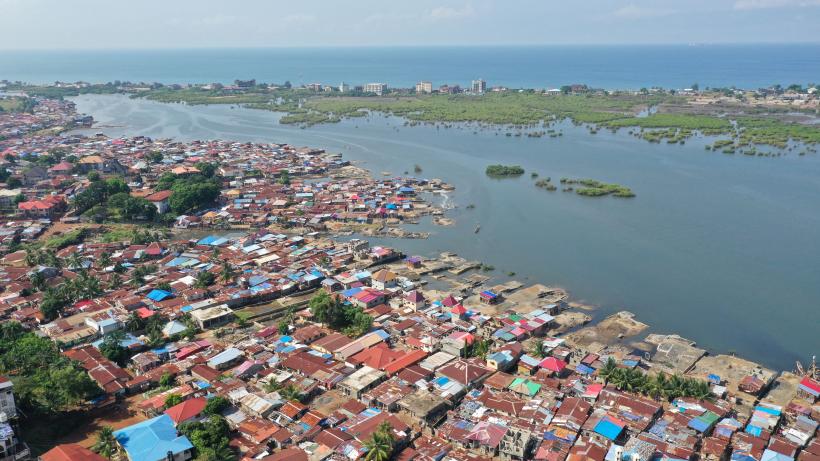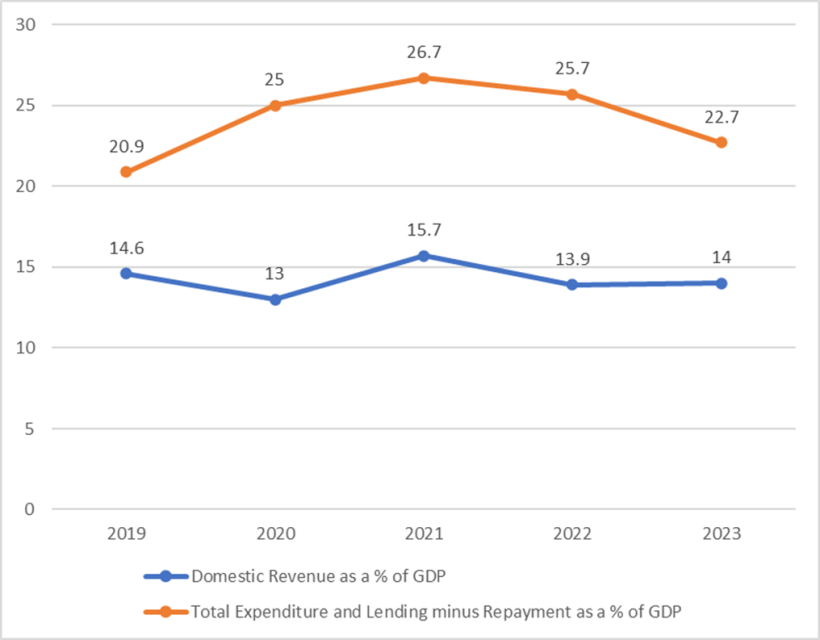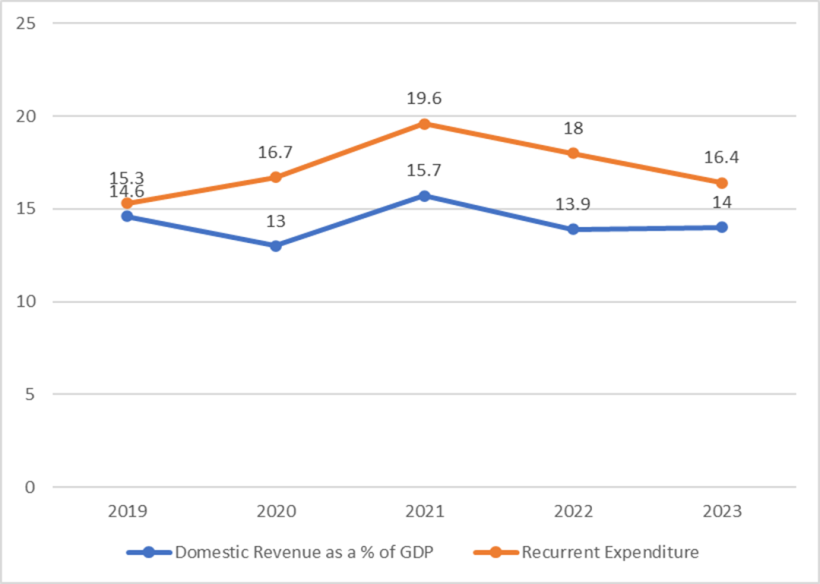
Three reasons why increasing domestic revenue remains a challenge in Sierra Leone
The large informal share of Sierra Leone’s economy, its dependence on external debt, and a weak social contract with its people impede domestic revenue mobilisation in the country.
Sustainable growth for any country will not be possible without revenue to finance delivery of social services. According to Sierra Leone's 2024 budget statement, the inability to generate adequate domestic revenue continues to constrain the government in delivering basic needs for its citizens. Over 30% of Sierra Leoneans live without clean drinking water, 45% without decent sanitation, and over 30% of children under five years have stunted growth. Access to electricity remains a major challenge with over 60% of the population not having access to electricity while less than 10% of the roads are paved.
Revenue could be mobilised domestically through taxes and externally through debts and grants. Like many other developing countries, despite several reform efforts, Sierra Leone’s tax system is largely fragmented, ineffective, and unfair. The country has been persistently spending far more than the domestic revenue collected (see Figure 1).
Figure 1: Total expenditure and domestic revenue from 2019-2023

According to the government’s Medium Term Revenue Strategy, several efforts including institutional reforms such as merging the Income Tax and Goods and Service Tax (GST) departments in 2011 and the implementation of the Domestic Tax Information System (DTIS) in 2012 supported the following reforms among others: automation of the taxpayer registration process and the re-registration of taxpayers; automation of new GST processes supported by the Value Added Tax Information Processing System (VIPS); roll-out of DTIS payments module to two banks for most of the payments received by the National Revenue Authority (NRA) as well as reviewing existing and enacting new laws and policies such as the Finance Act (2020) with enabling provisions to support the implementation of the Electronic Cash Register (ECR) scheme. Yet, hovering between 10% and 15% of GDP, the revenue to GDP ratio remains well below the sub-regional average of 18%.
Constrained revenue mobilisation often results in fiscal deficits. Figure 1 shows persistent deficits over 2019-2023. While domestic revenue hovers between 13% and 16% of GDP, total expenditure is between 20% and 26% of GDP. This resulted in a large gap with an average difference of over 50% which is financed by external resources (grants, loans, among others).
Why does Sierra Leone struggle to raise domestic revenue?
The Government of Sierra Leone faces serious fiscal challenges despite several reforms (policy and institutional). Domestic revenue is below the regional average and is inadequate to finance the budget. There are three key challenges impeding the expansion of the fiscal space in Sierra Leone:
- Structure of the economy: Like many other low-income countries (particularly in sub-Saharan Africa), the Sierra Leone economy is largely informal. The recent Labour Force Survey indicates that over 70% of the working population are employed in the informal sector. The sector contains many small firms and individuals doing petty trading, farming, and other small-scale activities. These businesses and individuals are difficult to tax as they have no records of their businesses and low revenue.
While the country has designed and reviewed tax policies as well as reformed tax administration, very little has been done to encourage formalisation with a view to widen the tax base, leaving a significant share of economic activities untaxed.
- Dependence on external debt: Along with the total expenditure, even recurrent expenditure cannot be financed by domestic revenue (Figure 2). There is a persistent budget deficit and the government resorted to borrowing (internally and externally) to finance the deficit. This has led to an increase in the debt burden as the public debt to GDP ratio has risen to over 90%. Unfortunately, the debt accumulation has not increased economic growth and growing debt servicing costs, among others, have weakened the economy which in turn undermines tax revenue collection. Thus, Sierra Leone is in a vicious cycle where it needs to borrow to finance its budget and growth, hence its classification as being in debt distress.
Figure 2: Recurrent expenditure and domestic revenue from 2019-2023

- Weak social contract and public trust: The inability of the state to provide basic services for its citizens has undermined public trust and weakened the social contract. Accessing basic social services (quality health, education, sanitation) continues to be a major problem in Sierra Leone. This, combined with the high level of financial mismanagement has undermined public trust and by extension tax collection efforts.

